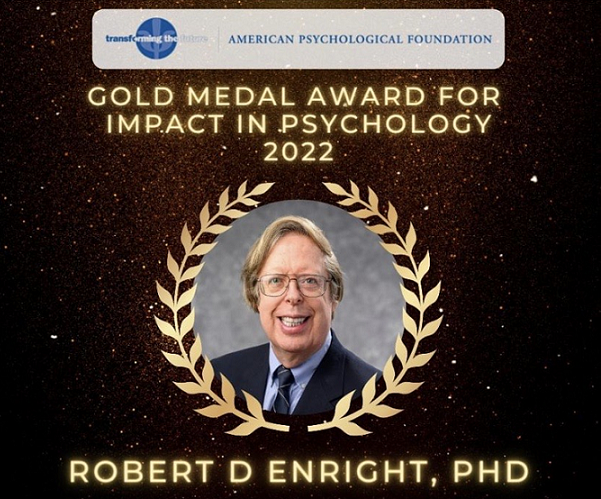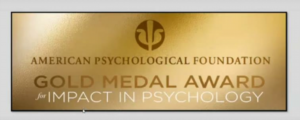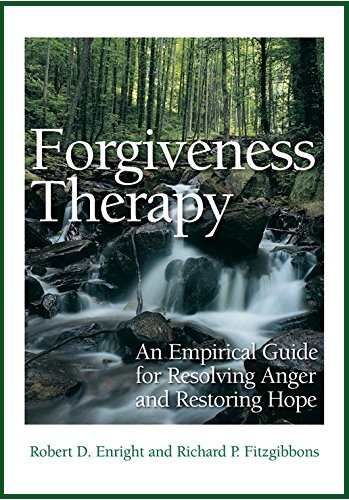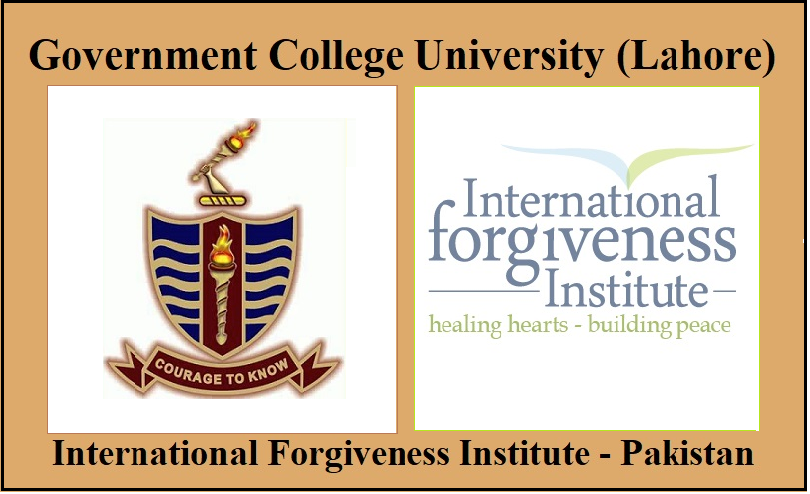Tagged: “Forgiving”
An Example of Finding Meaning in Deep Suffering: In Honor of Eva Mozes Kor
Consider one person’s meaning in a dramatic case of grave suffering. Eva Mozes Kor was one of the Jewish twins on whom Josef Mengele did his evil experiments in the Auschwitz concentration camp during World War II. In the film Forgiving Dr. Mengele, Mrs. Kor tells her story of survival and ultimate forgiveness of this notorious doctor, also known as the “Angel of Death.”
In describing her imprisonment as a child at Auschwitz, she said, “It is a place that I lived between life and death.” Soon after her imprisonment in the concentration camp, young Eva was injected with a lethal drug, so powerful that Mengele pronounced, after examining her, that she had only 2 weeks to live. “I refused to die,” was her response.
Her meaning in what she was suffering in the immediate short run was to prove Mengele wrong and thus to do anything that she possibly could to survive. Her second meaning in her suffering was to survive for the sake of her twin sister, Miriam. She knew that if she, Eva, died, Mengele immediately would kill Miriam with an injection to the heart and then do a comparative autopsy on the two sisters. “I spoiled the experiment,” was her understated conclusion. A third meaning in her suffering, a longer but still short-term goal, was to endure it so that she could be reunited with Miriam. A long-term goal from her suffering ultimately was to forgive this man who had no concern whatsoever for her life or the lives of those he condemned to the gas chamber. She willed her own survival against great odds, and she made it.
In this case, fiendish power met a fierce will to survive. Upon forgiving Mengele, she saw great meaning in what she had suffered. She has addressed many student groups, showing them a better way than carrying resentment through life. She opened a holocaust museum in a small town in the United States. And she realizes that her suffering and subsequent forgiveness both have a meaning in challenging others to consider forgiving people for whatever injustices they are enduring.
Her ultimate message is that forgiveness is stronger than Nazi power. And it has helped her to thrive.
Robert
» Excerpt from Chapter 5 of the book, 8 Keys to Forgiveness, R. Enright. Norton publishers.
Read more about Eva Mozes Kor and her forgiveness work with Dr. Robert Enright:
- Let’s Heal the World Through Forgiveness
- Nothing Good Ever Comes from Anger
- In Memoriam: Eva Mozes Kor
My daughter recently divorced her husband. She wants nothing to do right now with forgiving him. On the other hand, I am interested in forgiving him for how he treated my daughter. My question for you is this: Can I forgive him or would I be disloyal to my daughter who does not want to forgive?
You are free to choose forgiveness in this case. Even though your daughter’s ex-spouse did not hurt you directly, he did hurt you in a secondary sense in that he hurt your loved one. Forgiving in this context is appropriate. You are not being disloyal to your daughter if you choose to forgive to rid yourself of resentment. You need not, then, go to your daughter and proclaim your forgiveness and then pressure her now to do the same. You can forgive without discussing this with your daughter. If and when she is ready to forgive, then you can share your insights about the forgiveness process with her.
In your Process Model of Forgiveness, you have one unit called compassion. I am trying to forgive someone who passed away recently. Can I have compassion on this person and if so, how does this work?
Compassion includes at least four elements:
1) Sympathy toward the one who hurt you. Sympathy is an emotional reaction to another’s pain. For example, if someone comes to you angry that he just lost his job and now is struggling financially, you have sympathy when you feel sorry for the person. His anger and unfortunate situation leads to a different emotion in you: sadness.
2) Empathy toward the one who hurt you. Empathy is stepping inside the other’s shoes (so to speak) and feeling the same feeling as the other. Thus, when the other is angry, you empathize with that person when you also feel anger.
3) Behaving toward the other by supporting him or her in the time of distress. This could include a kind word or talking about the strategy of solving the job problem, as examples.
4) Suffering along with the person. This latter point is the deepest aspect of compassion. It could involve helping the person financially before a new job is secured; it could involve driving the person to a job interview.
In the case of having compassion for a deceased person, you can have sympathy and empathy (the first two elements of compassion), but you cannot engage in the other two elements because behavior with and toward the other is not possible. Compassion need not have all four elements to count as compassion. You can think of the hard times endured by the deceased person and react with sympathy and empathy. Such compassion may aid your forgiveness.
“Forgiveness Pioneer” Wins Inaugural Gold Medal Award for Impact in Psychology
The scientific application of forgiveness, forgiveness education, and forgiveness therapy is being singled out for its “game-changing impact on the field of psychology” by the country’s largest and oldest organization of doctoral-level psychologists.
The American Psychological Foundation (APF), the grant-making arm of the American Psychological Association (APA), has just announced the winner of its first-ever Gold Medal Award for Impact in Psychology—Dr. Robert Enright, a professor of Educational Psychology at the University of Wisconsin-Madison, and founder of the International Forgiveness Institute.
Classified as one of psychology’s highest honors, the award “recognizes a psychologist whose work has had a game-changing impact on the field of psychology,” according to APF board president Terence M. Keane, PhD. He added that the new award acknowledges “a psychologist’s body of work that has been impactful, innovative, and transformational.”
Prior to this year, the award was called the Gold Medal Award for Life Achievement and it has been bestowed on exceptional psychological innovators by the APF for the past 65 years. Previous winners have included B. F. Skinner (the 1971 winner who developed behavior analysis), Harry Harlow (the 1973 winner and a UW-Madison psychologist like Dr. Enright), Rollo May (1987), Mary Ainsworth (1998), and Albert Bandura (2006).
“For the APA and the APF to position forgiveness alongside the creative achievements of those giants in the field of psychology is truly a profound pronouncement,” Dr. Enright said after learning of his recognition.
 As a grant making foundation, the APF helps fund psychologists and students worldwide who are using psychology to address major issues and improve lives. The APA has more than 133,000 members—doctoral-level researchers, educators, clinicians, consultants, and students (associate members). Combined, the two organizations have more than 500 staff members who focus on providing services to psychologists like Dr. Enright who have dedicated their lives to improving the mental health and welfare of others.
As a grant making foundation, the APF helps fund psychologists and students worldwide who are using psychology to address major issues and improve lives. The APA has more than 133,000 members—doctoral-level researchers, educators, clinicians, consultants, and students (associate members). Combined, the two organizations have more than 500 staff members who focus on providing services to psychologists like Dr. Enright who have dedicated their lives to improving the mental health and welfare of others.
Dr. Enright, a licensed psychologist, has devoted 37 years to the scientific study of forgiveness. As the unquestioned pioneer in the field of forgiveness, Dr. Enright published the first social scientific journal article on person-to-person forgiveness and the first cross-cultural studies of interpersonal forgiveness. He also pioneered forgiveness therapy and developed an early intervention to promote forgiveness–the 20-step “Process Model of Forgiving.”
The Enright Forgiveness Inventory (EFI), an objective measure of the degree to which research participants forgive another who has been unjust and hurtful toward them, is now used by researchers around the world. The Enright Forgiveness Inventory for Children (EFI-C), the Enright Self-Forgiveness Inventory (ESF-I), and the Enright Group Forgiveness Inventory (EGFI) have all become standard research tools known simply by their abbreviations.
Dr. Enright also pioneered the use of forgiveness therapy in clinical practice by developing  interventions that gained critical acclaim with the APA’s publishing in 2015 of Forgiveness Therapy, an instructional manual for clinicians written by Dr. Enright and psychiatrist Richard Fitzgibbons, MD. The two authors were selected in 2019 as recipients of the prestigious Expanded Reason Award presented by the University Francisco de Vitoria (Madrid, Spain) in collaboration with the Vatican Foundation Joseph Ratzinger/Benedict XVI (Rome, Italy) “to recognize and encourage innovation in scientific research and academic programs.”
interventions that gained critical acclaim with the APA’s publishing in 2015 of Forgiveness Therapy, an instructional manual for clinicians written by Dr. Enright and psychiatrist Richard Fitzgibbons, MD. The two authors were selected in 2019 as recipients of the prestigious Expanded Reason Award presented by the University Francisco de Vitoria (Madrid, Spain) in collaboration with the Vatican Foundation Joseph Ratzinger/Benedict XVI (Rome, Italy) “to recognize and encourage innovation in scientific research and academic programs.”
Dr. Enright’s ambitious approach to forgiveness education included the development of 14 Forgiveness Education Curriculum Guides for students in grades Pre-K through 12th. Through stories, children learn about the five moral qualities most important to forgiving another person–inherent worth, moral love, kindness, respect and generosity—and eventually, how they themselves can become a forgiving person.
A just-completed meta-analysis by University of Wisconsin-Madison researchers involving more than 1,500 students in 10 countries shows that students enrolled in Forgiveness Education Programs demonstrated reduced anger and increased forgiveness toward those who have hurt them. Those forgiveness guide lesson plans, distributed through the IFI, have been requested by educators in more than 30 countries and contentious regions around the world.
 Adding to its forgiveness education agreements with many of those countries, the IFI’s newest Branch Office is IFI-Pakistan, a partnership with the Government College University Lahore, Lahore, Pakistan–the first in that country and in Southern Asia. In Greece the IFI has trained more than 600 grade school instructors in the past 8 years who are now teaching forgiveness to more than 6,000 Greek students.
Adding to its forgiveness education agreements with many of those countries, the IFI’s newest Branch Office is IFI-Pakistan, a partnership with the Government College University Lahore, Lahore, Pakistan–the first in that country and in Southern Asia. In Greece the IFI has trained more than 600 grade school instructors in the past 8 years who are now teaching forgiveness to more than 6,000 Greek students.
“Although the virtue of forgiveness has made astronomical strides in the past few decades, we are just on the edge of what it can offer us for the future,” Dr. Enright says. “Forgiveness must have a seat at the peace-keeping and peace-making table.”
According to Dr. Enright, his body of work has clearly demonstrated that as people forgive, they become less angry, less depressed, less anxious, and more hopeful of their future. In other words, people become more peaceful within themselves, making the possibility of peace with others more likely.
Dr. Enright has outlined his grass-roots approach to peace through a variety of forums beginning with his 2010 article “Forgiveness Education as a Path to Peace,” his 2014 address to the United Nations Population Fund “Forgiveness as a Peace Tool,” and his recent series of 3 essays on peace published on the Psychology Today digital website.
In 2015, Dr. Enright accompanied Eva Mozes Kor, a survivor of the Holocaust, on a series of US radio interviews to promote peace through forgiveness. His peace initiatives have earned him peace educator awards including being named a Paul Harris Fellow by Rotary International in 2016.
Time magazine has called Dr. Enright “the forgiveness trailblazer.” The Los Angeles Times said Dr. Enright is “the guru of what many are calling a new science of forgiveness.” The Christian Science Monitor called Dr. Enright “the father of forgiveness research.”
As the recipient of the 2022 Gold Medal Award for Impact in Psychology, Dr. Enright will be honored during APA 2022–the annual American Psychological Association convention on August 5th in Minneapolis, MN. He will receive a gold medal plaque and a modest honorarium during the APF Friends of the Foundation reception.
How important is it for me to follow exactly your 20 steps in your Process Model of Forgiveness?
This process model was not constructed to be a rigid model in which you have to follow the sequence in the exact order. Some of the units will be irrelevant for you and so you can skip them. Sometimes, as you are near the end of the forgiveness process, your anger re-emerges. At that point it may be best to cycle back to the earlier units to once again examine and confront your anger.



